
Background information
How did Hollow Knight: Silksong become the most eagerly awaited indie game of all time?
by Philipp Rüegg
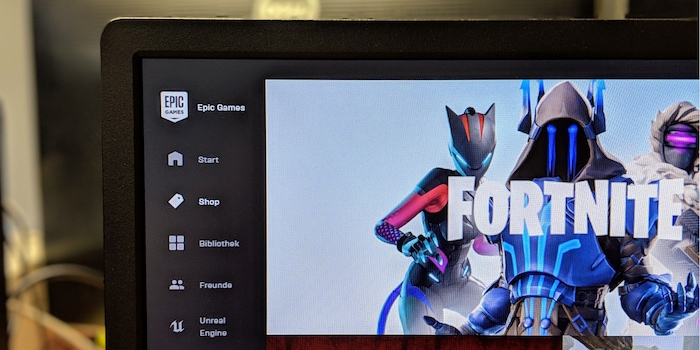
The company behind "Fortnite" is launching its own game store with extremely attractive conditions for developers. Does Steam need to watch out, and what does this mean for us gamers?
As a child, I wasn't allowed to have any consoles. It was only with the arrival of the family's 486 PC that the magical world of gaming opened up to me. Today, I'm overcompensating accordingly. Only a lack of time and money prevents me from trying out every game there is and decorating my shelf with rare retro consoles.
Interesting facts about products, behind-the-scenes looks at manufacturers and deep-dives on interesting people.
Show all
Background information
by Philipp Rüegg

Background information
by Philipp Rüegg

Background information
by Debora Pape
What an outcry there was when we had to install Steam just to game Half-Life 2. 14 years later, there's no sign of it anymore. Steam dominates the PC market with over 125 million users (as of 2015). Now another game developer could challenge Valve - the company behind Steam - for the throne. Epic launched the Epic Games Store on Tuesday. Epic is known for "Unreal Tournament", "Gears of War", oh yes, and a little game called "Fortnite". The new online store will initially offer hand-picked titles and will open the door wider and wider over the course of next year. Epic's shop will not only appear for PC and Mac, but also for Android.
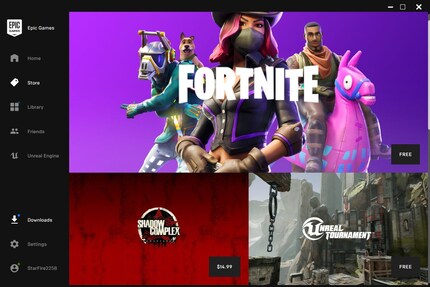
EA, Ubisoft, CD Projekt Red, Microsoft: they all have their own store. What's different about Epic, you might be thinking. For one thing, there are 200 million registered players for what is probably the most popular game in the world. 8.3 million were online at the same time at peak times. There are also two free games every month. Epic is also doubling down on its efforts to attract game developers. Since July, anyone who creates assets for the store using Epic's Unreal Engine no longer has to pay 30 per cent of the sales revenue, but only 12 per cent. This decision applies retroactively for the last four years. The Epic Games Store will continue in this vein. Anyone who sells their game there can keep 88 per cent of the proceeds. Whether Steam, Google Play Store or iTunes, the industry standard is otherwise 70/30.
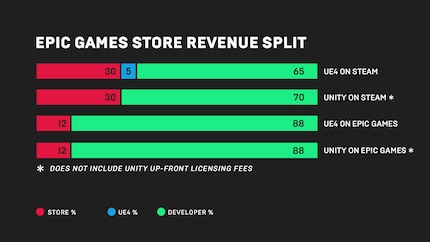
A huge user base, which tends to be young but obviously very keen to buy, combined with extremely attractive conditions for developers are not a bad prerequisite if you want to shake up the games market. According to a study by lendEDU, a student loan company, 69 per cent of players have spent money on "Fortnite" - an average of 85 dollars. That's enormous!
Epic's app store could also have a far-reaching impact on Android - more specifically, on the Google Play Store. While it is normal in many Asian countries to use various app stores on smartphones, no one in our part of the world has been able to assert themselves against the Google Play Store. As every "Fortnite" player on Android has already had to install the Epic Launcher manually, Epic already has a foot in the door. And just like on PC, Epic's mobile store is extremely attractive for developers. In addition to the better margin, they benefit from significantly better visibility. Both the Google Play Store and Steam are flooded with hundreds, if not thousands, of new games every day.
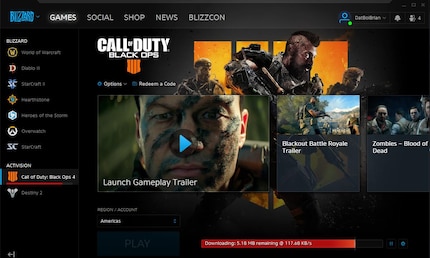
A few days before Epic's announcement Valve announced that it would also be paying out more money to developers. Anyone who earns between 10 and 50 million US dollars from a game will only have to pay Valve 25 per cent instead of 30 per cent. For over 50 million, it's only 20 per cent. For everyone else, however, the deal remains the same. The new regulation primarily benefits the large studios. Valve probably wants to ensure that heavy hitters such as "PUBG", "Warframe" or "Rainbow Six Siege" remain on Steam and do not migrate to the competition. This has already happened with "Call of Duty", which was no longer released on Steam this year but was distributed exclusively via Activision Blizzard's Battle.net service. "Fallout 76" did not find its way to Steam either, even though Bethesda is keeping this option open.
Activision Blizzard and Bethesda are by no means the only ones to have set up their own digital game stores. EA has the Origin Store and Ubisoft has Uplay. In most cases, only games from the respective manufacturers can be found there, but CD Projekt Red ("The Witcher") has set up a successful store with GOG, where you can no longer only find restored classics. With the Windows Store and games such as "Forza Horizon", "Sea of Thieves" and the upcoming "Crackdown 3", Microsoft also has a couple of strong draws.
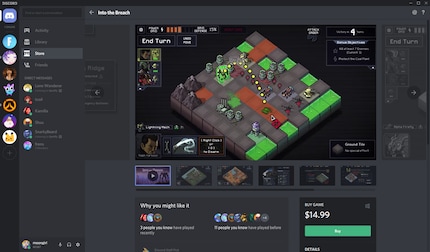
You should also keep an eye on Discord. Within a very short space of time, the app has evolved from a Team Speak alternative to the new social meeting place for gamers. Discord is now not only used on PCs, but also on mobile devices and consoles. The service already has 130 million users. It therefore came as no surprise that Discord also opened a store in October. Although the selection of games is still quite modest and largely consists of indie titles, the appeal of the platform should not be underestimated.

It is also interesting to note that the same Chinese company is behind several of these stores: Tencent. In China, the company is primarily known for Wechat and QQ, the two largest messenger services in the world. In recent years, one of the ten most valuable companies has expanded extensively into the gaming industry without causing much of a stir. In 2012, Tencent bought a 48 per cent stake in Epic Games. Tencent also contributed its share of the 30 million dollars that Discord used as start-up capital. And the Chinese influence does not end with these two companies. Riot Games, the makers of "League of Legends", are also owned by Tencent. Two years ago, the Chinese also bought more than 80 per cent of Supercell, which makes the cash registers ring with "Clash of Clans" and "Clash Royale", for a paltry 8.6 billion. Tencent also owns minority stakes in Ubisoft, Activision Blizzard and Bluehole, which publishes "PUBG", the biggest competitor to "Fortnite".
More competition often means a better offer and better prices. Gamers and developers could therefore be the real winners of this power struggle. Breaking up the 70/30 formula alone can be celebrated as a success. However, very few people are still benefiting from this distribution. Steam also has a huge head start both in terms of buyers and the shop. The return policy alone, which Steam has only had in place for a few years, is sorely lacking in most other shops. With "Counter-Strike: GO", "Dota 2" and "Team Fortress 2", three of the most popular games are also owned by the company itself. The gigantic library will not be disputed by Steam any time soon either. Nevertheless, everyone at Valve's headquarters will be watching the development of Epic's game store very closely. How do you see it? Where is the development heading? Will Steam be replaced by Epic or can the service maintain its supremacy?
Is the Epic Games Store becoming a threat to Steam?
The competition has ended.

Sharge 170
24000 mAh, 170 W, 86.40 Wh